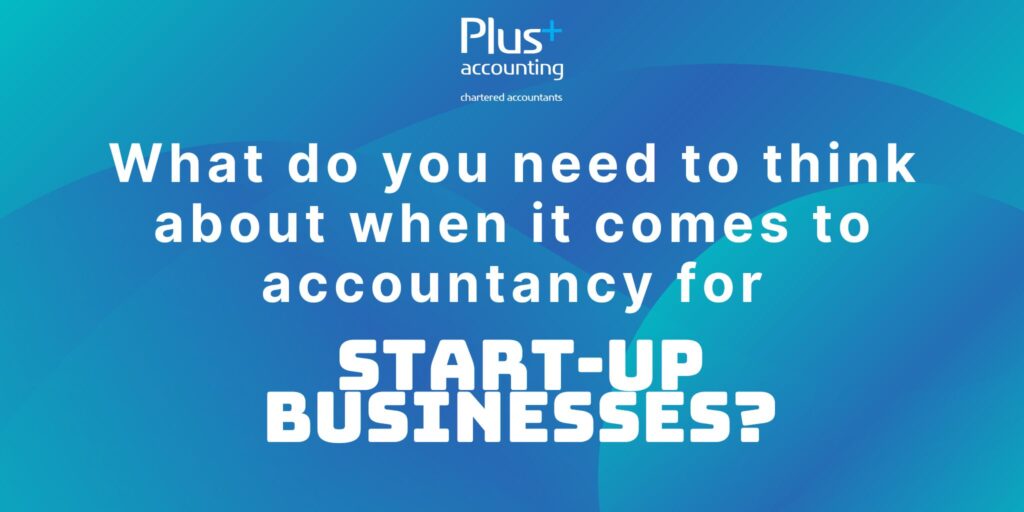How should I organise my business finances?
Organising your finances is not always the most enjoyable aspect of running your own business, but it is one of the most crucial. Maintaining good control of your finances can help your business grow and succeed.
You’ll need to consider whether to use a cloud-based system, like Xero, to maintain your records or keep manual records using bank statements and excel spreadsheets. This all depends on whether you wish to pay subscription fees, as doing this can get you a more sophisticated record keeping platform. It is also helpful to maintain diary notes of when your big deadlines will be throughout the year, whether that’s the accounts filing deadline, VAT return deadlines or self-assessment deadline, to help with cashflow and avoid nasty shocks when a tax payment becomes due!
To avoid the risk of fines and penalties for late filing, it’s always best to maintain your records at least monthly or quarterly, and if using an accountant, provide the information to them in good time for the accounts and/or returns to be prepared well in advance of any deadlines.
How can having an accountant help with the growth of my company?
An accountant can help focus your mind on the important financial figures of your business. At times looking at the company’s financials can be a bit daunting, and you might not always understand fully the figures in front of you. An accountant can help you understand where your key performance indicators are, the cost factors to consider for your growth plans, and whether you will require additional funding for your plans.
An accountant can also take away some administrative tasks like quarterly VAT returns or payroll submissions, leaving you more time to focus on the core work of your business and helping you to achieve the growth you would like.
What is the right accounting package for me?
There are many different accounting software packages available, the ‘main’ ones being Xero, Sage, Quickbooks & Freeagent. With the expansion of Making Tax Digital for VAT returns by HMRC, many businesses are being forced into digitalising their accounts information. Many of the software providers offer small/start-up packages for businesses with fewer transactions, which can help keep the costs down.
There are also advanced packages, which can be useful if you trade using different currencies, as these will have up to date currency translations. Having a cloud-based accounts system does help give you more up to date financial information, which can be important for planning and budgeting.
Most standard packages for each system range from £25 – £30 + VAT per month.
What management information should I be looking at?
The main financials you will be focusing on as your business grows, will be sales turnover, gross profit and net profit.
Gross profit will be your sales less cost of sales, and you need to have a grasp on your cost of sales per unit, so that you can price your goods/services accordingly, to ensure you maintain a suitable profit margin per sale.
Your net profit figure will take into account your administrative expenses and any interest and/or corporation tax amounts payable. The net profit will be your overall ‘take home’ profit from your business and will impact the amount of dividends you can withdraw.
You’ll want to have an idea of how much income from the business you would like to take out of the business to maintain your lifestyle, to ensure the finances of the business can achieve this.
How can I handle VAT (and payroll)?
If your business is VAT registered, in most cases, you will have quarterly VAT returns to file. You will need to ensure your VAT returns are prepared and filed 1 month and 7 days after the quarter period end date.
It is now compulsory for VAT registered businesses to file their returns with HMRC using a MTD compliant software, such as Xero, so you will need to ensure that you are set up with a compatible software to be able to file your returns. The old method of logging into HMRC website and manually entering the VAT figures is no longer available to you (with a few exceptions).
HMRC offer a basic payroll software in which you can file payroll submissions without the need to pay for separate software. Other accounts software systems, like Xero, often have a payroll add on function available which you can use for an extra charge. Payroll, like VAT, can be head scratching stuff at times, with the likes of workplace pensions rules to consider etc. So, unless you are confident in doing your own payroll, you may wish seek help from an experienced payroll provider.
Please feel free to contact us if you would like any support in relation to your VAT and/or payroll services.
Do I have sufficient finance for the next 6-12 months?
To answer this, you will need to look at your cashflow forecasts. It is helpful in these situations if you use an accounts software like Xero, as you can use the reports provided in the software to help prepare your cashflow forecasts. You will need to enter projections of money you expect to receive in, as well as money going out, often based on historic trading information you have.
We can help prepare your forecasts and guide you on potential difficulties that you may face, as well as comparing actual cash flow data against your forecasted figures and help look for the causes of any discrepancies that arise.
My personal tax situation has changed. What do I do?
As your personal tax affairs become more complex, perhaps you have acquired a rental property or invested in a share scheme, it may leave you unsure as to whether you have prepared your return correctly and can lead to errors creeping into your return – understanding the ever-changing tax rules and systems can be a constant battle.
To help give you peace of mind, we are able to help with your personal tax returns and provide helpful advice on your tax affairs, as well as ensuring the correct tax liability is declared on your returns to HMRC.
Should I be doing my own book-keeping?
Completing your own bookkeeping can often be a time-consuming task, especially if your business is growing and the number of transactions you have to reconcile is increasing. You may have done the bookkeeping yourself to save on costs, but as your business grows, it is likely that your time is better spent on managing the core element of the business rather than an administrative task like bookkeeping. Taking on too much can lead to long hours and increased stress levels. It is worth comparing the cost v benefit scenarios and whether bringing someone in internally to do the bookkeeping, or using an experienced external bookkeeper would be more beneficial. Do get in touch with us if you need to get assistance with your company’s bookkeeping
Can my accountant help me apply for a bank loan or overdraft?
Yes, we are often asked by our clients to assist with providing the financial information requested as part of the application process, as well as providing assistance with budgeting information to help determine whether you can afford the expected repayment schedule.
Can I create more profit in my business by doing something smarter?
This depends on what you deem as being smarter, but you won’t be able to increase your profit without knowing your financials like the back of your hand. The main point will be to analyse what are your fixed and variable costs, see if there is anything you can cut down on, and the impact of price rises on your sales, how price sensitive your customer base is.
We are available to help dive into your finances and come up with options to increase your profit levels.
I’m bound to have lots of questions – who can I call?
At Plus Accounting you will have a designated team member who would be your first point of call for any queries you may have, however big or small the query is. We have an experienced and knowledgeable team, so we are able to help out in many areas, as well as having a number of professional contacts we can refer you on to, should your question fall outside of our remit.
Now my business is growing, how quickly should I expand?
The important thing with business growth is to not expand too quickly. Large growth might seem attractive with the rewards that come with it, however without having the foundations in place for your business, growing too quickly may stretch your time and resources, and can impact your profits.
It would be a good idea to forecast your expected trading figures following expansion of the business, ensuring you have the right levels of employees to cope with the increased trade, or ensure your suppliers are equipped to cope with your needs or whether you need to source alternatives.
Author: Mark Horsfield, Business Services Manager, Plus Accounting
Any views or opinions represented in this blog are personal, belong solely to the blog owner and do not represent those of Plus Accounting. All content provided on this blog is for informational purposes only. The owner of this blog makes no representations as to the accuracy or completeness of any information on this site or found by following any link on this site
Date published: 12 October 2022



